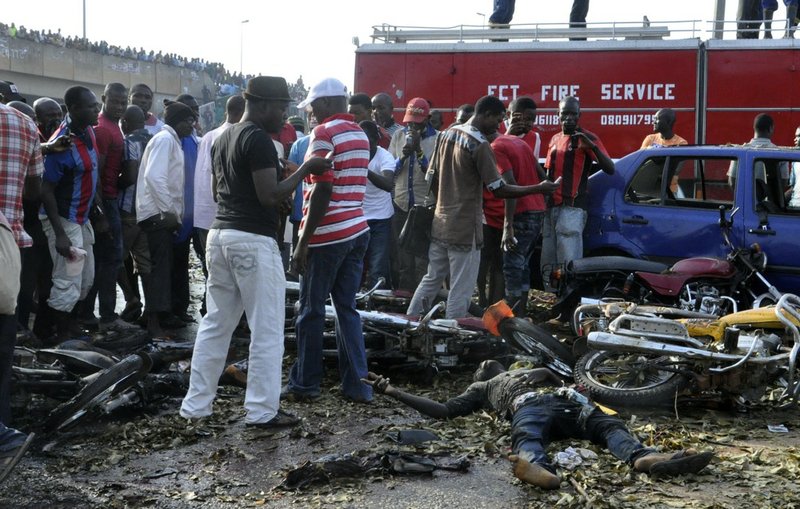ABUJA, Nigeria — A huge explosion ripped through a bus station during the morning rush hour in Nigeria's capital, killing at least 71 people and wounding 124 in a bombing that marked the bloodiest terrorist attack ever in Abuja.
President Goodluck Jonathan visited the scene and blamed Boko Haram, an Islamic extremist group which operates in the northeast of Nigeria and which has been threatening to attack Nigeria's capital. One official said he believed the bomb buried in the earth while the emergency management agency said the explosives were apparently hidden in a vehicle.
The blast destroyed 16 luxury buses and 24 minibuses and cars, said police spokesman Frank Mba, who gave the death toll.
Security personnel battled to belatedly cordon off the area as a bomb detonation team was combing it for secondary explosives, a common occurrence here. Thousands of bystanders gathered, ignoring warnings to stay away. While violence has torn the northeast where Boko Haram has killed thousands, the capital in the middle of Africa's most populous country has been relatively peaceful.
Read tomorrow's Arkansas Democrat-Gazette for full details.
